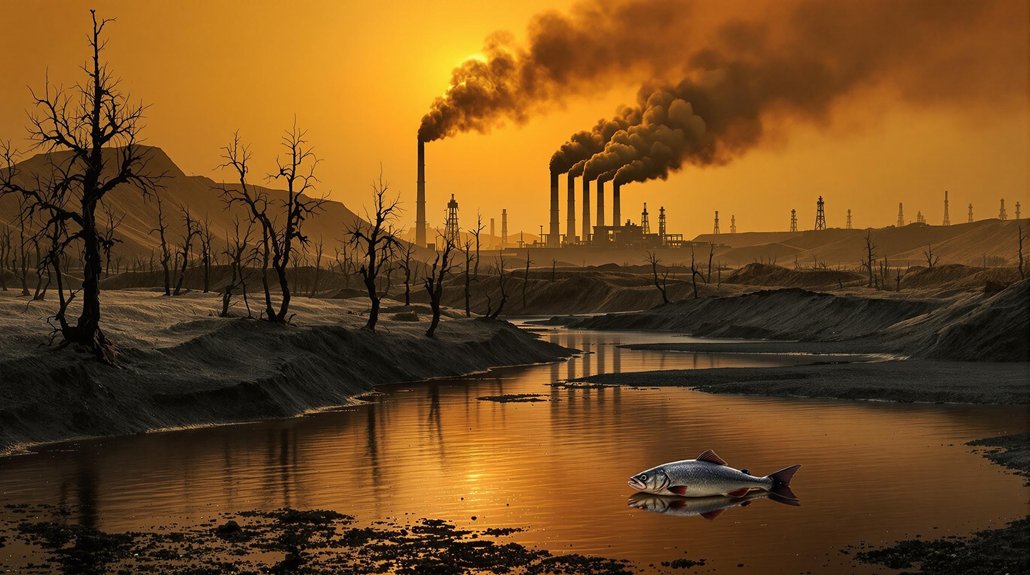Fossil fuels are wrecking the planet in spectacular fashion. They pump out 65% of greenhouse gases, with coal leading the pollution parade. The damage is staggering: 4.5 million premature deaths yearly from air pollution, devastated marine ecosystems from oil spills, and contaminated groundwater from fracking. Temperatures have climbed 1.1°C while sea levels creep up 3.6mm annually. And hey, those are just the highlights of this environmental horror show.

While humanity’s appetite for fossil fuels has powered unprecedented growth and development over the past century, the environmental price tag is becoming impossible to ignore. Fossil fuels now account for 65% of global greenhouse gas emissions, with coal burning leading the pack as the biggest CO2 culprit. And let’s not forget methane from natural gas – it’s 25 times more potent than CO2. Nice going, humans. Natural gas combustion releases 44 pounds of CO2 for every 16 pounds of methane burned.
The death toll is staggering. Fossil fuels kill 4.5 million people prematurely each year through air pollution alone. Particulate matter chokes cities, sulfur dioxide creates acid rain, and mercury from coal plants causes neurological damage. Meanwhile, ground-level ozone triggers asthma attacks. But hey, at least we can keep our lights on 24/7, right? These pollutants affect 1 in 10 American deaths. The Industrial Revolution marked the beginning of widespread air pollution that continues to harm public health today.
Every breath we take is laced with the deadly price of fossil fuels – millions dead yearly from our addiction to dirty energy.
Water bodies are taking a brutal hit too. Oil spills leave marine ecosystems reeling for decades. Fracking chemicals seep into groundwater. Coal ash loaded with arsenic and lead poisons waterways. And those massive power plants? They’re cooking aquatic life with thermal pollution while acid mine drainage turns streams into toxic soup.
The land doesn’t fare any better. Strip mining tears landscapes apart, while oil and gas drilling fragments ecosystems like a sledgehammer to glass. Pipeline construction cuts through wildlife migration routes like a hot knife through butter. Fossil fuel infrastructure now hogs 3-4% of global land area.
Oceans are literally becoming more acidic as they absorb 25% of our CO2 emissions. The pH has dropped 0.1 units since the 1700s – doesn’t sound like much until you realize it’s devastating coral reefs and making it impossible for shellfish to form their shells.
Global temperatures have shot up 1.1°C, sea levels are rising 3.6mm yearly, and extreme weather events are becoming the new normal.
The silver lining? Renewable alternatives are getting cheaper – solar costs have plummeted 85% since 2010. Electric vehicles slash emissions by half compared to gas guzzlers. But with fossil fuel emissions still increasing 1% in 2022, we’re basically bringing a water pistol to a wildfire.








